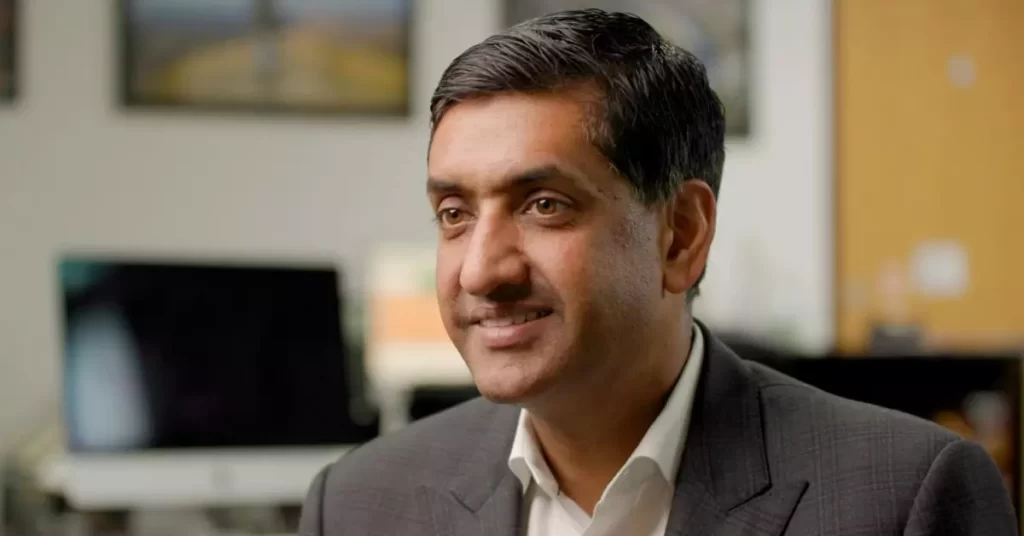Ro Khanna Leads Bipartisan Delegation to Commemorate India’s Independence Day
Amarnath Vidyalankar’s image, etched in an aged photograph from nearly half a century ago, captures him standing resolutely outside the U.S. Capitol in Washington, D.C. A historical icon in the nation’s capital, this is where his grandson, Ro Khanna, now serves as a four-term House member.
A stalwart of India’s fight for freedom, Vidyalankar was a significant figure in India’s inaugural parliament and spent years incarcerated alongside the eminent Mahatma Gandhi during the struggle for the nation’s liberation from British colonial rule.
For Khanna, a Democratic representative from California, the sight of his grandfather in a photograph at the place where he currently toils is nothing short of surreal. Leading a bipartisan congressional mission, Ro Khanna will be in India during the summer recess, coinciding with the celebration of India’s Independence Day on August 15th.
Reflecting on this momentous journey, Khanna shared, “I think it really hit me now that I’m leading this delegation, going on Indian Independence Day to celebrate a moment that my grandfather sacrificed so much of his life for.”
The Significance of U.S.-India Relations
Khanna emphasizes that the bond between the United States and India has never been more crucial. In the 21st century, India has emerged as one of America’s paramount allies. With its trajectory toward becoming a formidable economic powerhouse, India is poised to become the world’s third-largest economy by 2030. This development positions the United States to forge stronger connections with the globe’s most populous nation.
“Aligning with that big of a democracy is critical,” Khanna asserted, recognizing the strategic implications of such a partnership.
A Testament to Historical Convergence
This venture holds profound historical significance, encapsulating the synergy between past and present. Vidyalankar, Khanna’s grandfather, was an integral part of the Indian Independence Movement for 15 years. His association with Lala Lajpat Rai, a leader of the freedom movement who tragically perished during a police baton charge, further catalyzed Vidyalankar’s fervor for independence.
Vidyalankar’s path as a freedom fighter was strewn with obstacles. He endured imprisonment for his impassioned articles advocating India’s liberation in the early 1930s. Over a decade later, he was once again incarcerated alongside Gandhi as part of the Quit India movement, a campaign demanding an end to British colonial rule during World War II.
Khanna’s connection with his grandfather runs deep, enriched by childhood memories of summers spent in India. These experiences included joint culinary escapades creating Indian sweets and absorbing tales from the Mahabharata, a timeless Hindu epic, narrated by his grandfather.
As Khanna matured, he gleaned additional insights about his grandfather’s valiant pursuits from his grandmother. Her accounts painted a vivid portrait of Vidyalankar’s time behind bars, a period during which she admirably raised Khanna’s mother and siblings while he was either incarcerated or traversing the nation for the freedom movement.
These stories etched Vidyalankar’s legacy as a towering figure in Khanna’s familial narrative and, significantly, as a beacon of inspiration for his own political journey. Khanna recalled his inaugural foray into politics – a daring primary campaign against the Iraq War – which, though unsuccessful, laid the foundation for his commitment to a more equitable world.
Bridging Continents, Forging Partnerships
Khanna’s current endeavor exemplifies the symbiosis between countries and cultures. As the leader of a groundbreaking congressional delegation, he spearheads the commemoration of India’s Independence Day. The delegation will convene at the Raj Ghat, an iconic site honoring Gandhi, and the Red Fort, a historic edifice where they will engage with India’s Prime Minister.
This historic mission is a collaborative effort co-chaired by Khanna and Representative Michael Waltz, a Republican from Florida, who share the helm of the bipartisan Congressional Caucus on India and Indian Americans.
Khanna underscored the historical resonance of this voyage, observing, “To chair the India Caucus and to lead the first delegation on Indian Independence Day at the Red Fort is quite definitely history coming full circle with my grandfather.”
Symbolism and Synergy
The delegation’s agenda reflects the profound bonds between the United States and India. It includes meetings with luminaries from business, technology, government, and even Bollywood, aiming to deepen cultural connections. This symbolic display of bipartisanship during India’s Independence Day celebrations holds immense significance for both nations.
Khanna’s diplomatic efforts extend beyond politics, resonating in the realm of sports. He plans to engage in “cricket diplomacy,” discussing the upcoming Cricket World Cup set to be hosted in the United States. He hopes to facilitate the attendance of Indian cricket enthusiasts at the matches.
Diverse Discussions and Shared Goals
The discussions on this diplomatic sojourn are multifaceted, ranging from health data standardization to fostering markets for American exports in India. A key focus is on crafting avenues for India to become an alternative trade partner to China. As a senior member of the House Armed Services Committee and a participant in the House Select Committee on China, Khanna also delves into strategic and defense relationships between the two nations.
U.S.-India Relations: A Confluence of Interests
Khanna’s perspective on U.S.-India relations underscores their strategic significance, largely driven by India’s expansive economic market. He highlights the prospect of establishing a trade surplus with India, in contrast to China, where manufacturing has largely relocated.
Khanna’s reflections on this historic mission encapsulate the profound arc of history. His grandfather’s legacy, an embodiment of courage and idealism, infuses his present-day political journey with purpose. This unique confluence of the personal and the political exemplifies the profound connection between family heritage and a global pursuit for justice and progress.
As Khanna champions bipartisan diplomacy, he simultaneously acknowledges his grandfather’s sacrifice as an emblem of the historical pursuit of freedom. The journey, both symbolic and pragmatic, celebrates shared values, deepens cultural ties, and nurtures collaborative endeavors between two nations standing on the cusp of new possibilities.



